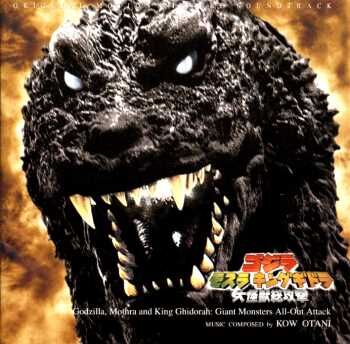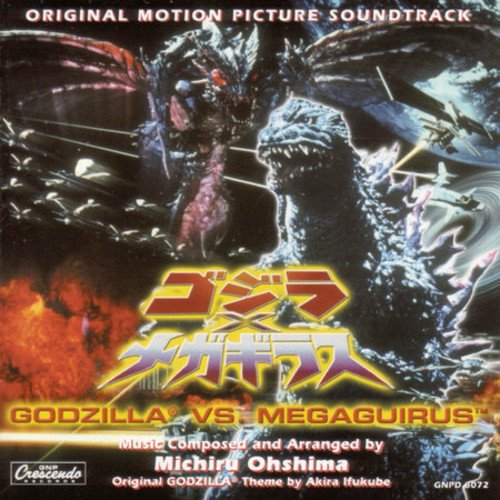
Composed by: Michiru Oshima
Masaaki Tezuka returned to the Godzilla franchise two years after Godzilla vs. Megaguirus, and he brought composer Michiru Oshima back with him. Godzilla Against MechaGodzilla is more than just a reboot of the last MechaGodzilla vehicle. This time the mech is literally built around the bones of the original 1954 Godzilla! This is the closest fans have gotten to a Godzilla vs. Godzilla movie. Godzilla Against MechaGodzilla is the first half of the Kiryu duology, Kiryu being the new name for MechaGodzilla. These are among my favorite Godzilla films, with good storylines, some pretty good characters, great special effects and battle scenes, and also some of the best Kaiju music.
Oshima once again starts the score with Godzilla’s theme. In “Toho Logo – Transport Duty” it leads to a one-off military march. The second track sees the return of the full-fledged Godzilla theme presentation. The iterations of the Godzilla theme aren’t much different than what was presented in Oshima’s last entry, but she distinguishes her score with the wealth of new themes. The first of these appears in “Main Title.” It’s the first of many heroic motifs established for the score. After a tragic event in the opening sequence, Oshima goes into dour-sounding material in “Ominous Memories” and “Memorial Service.” “Appearance Requested” is an urgent track with the fanfare from “Main Title.” Continue reading


![Godzilla 2000: Millenium [Original Motion Picture Soundtrack] * by Takayuki Hattori (CD, May-2005, GNP/Crescendo) for sale online | eBay](https://i.ebayimg.com/images/g/6Y4AAOSw-RFacfm6/s-l500.jpg)
